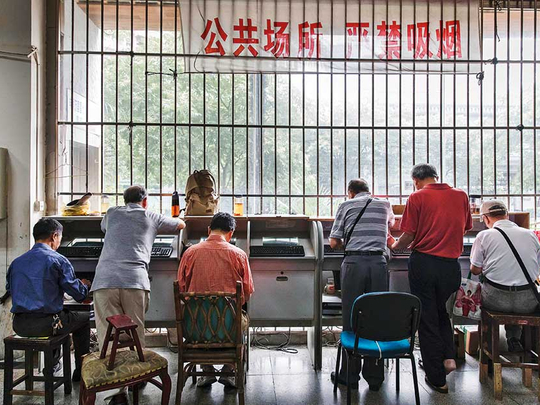
Shanghai
If international investors needed a reminder of the dangers lurking in China’s stock market, they got a big one on Thursday.
Less than 36 hours after MSCI Inc said China’s domestic shares would join its benchmark indexes, a sell-off in companies owned by two of the nation’s richest people sent shock waves through the market. The Shenzhen Composite Index dropped 1.3 per cent in the last hour of trading, erasing a gain of 0.2 per cent.
As the share decline accelerated, traders pointed to multiple rumours before media including Caixin and Bloomberg News reported that Chinese regulators had asked some banks to provide information on overseas loans to companies including billionaire Wang Jianlin’s Dalian Wanda Group Co. and billionaire Guo Guangchang’s Fosun International.
“This is the stock market with Chinese characteristics,” said Banny Lam, managing director and head of research at CEB International Investment Corp “When there is news related to politics, it would trigger a sell-off in the market even if it is just a rumour. This isn’t the first time and it won’t be the last time. Foreign investors who are investing in China may request a higher return on equity to hedge such political risk.”
Wanda Film Holding Co. halted trading in Shenzhen after its shares sank 10 per cent. Shares of Fosun International and related companies tumbled in Hong Kong and Shanghai. The turmoil comes days after news that the head of Anbang Insurance Group Co., an insurer with $294 billion of assets, was taken into custody.
Caixin reported that the CBRC requested checks on the companies as well as Anbang and HNA Group in mid-June, without saying where it got the information.
Attention on China’s internal politics has intensified before a key party congress later this year when the next generation of the Communist Party’s leaders will be chosen.|
To read more about risks of investing in mainland markets, click here
MSCI announced on Tuesday that 222 mostly large-cap mainland shares would be added to its global benchmarks next year. The index compiler said its next steps — using a bigger slice of A shares’ market caps to calculate their weightings, and adding mid-cap stocks — would be subject to certain conditions. Goldman Sachs Group Inc says $430 billion could flow into the market if China can make it to full inclusion.
“It’s obvious that the Chinese stock market is not mature enough,” said Dickie Wong, executive director of research at Kingston Securities Ltd. “Investors always panic when they see some kind of rumour even if it’s not confirmed. That’s the reality of A shares, especially the Shenzhen market.”











